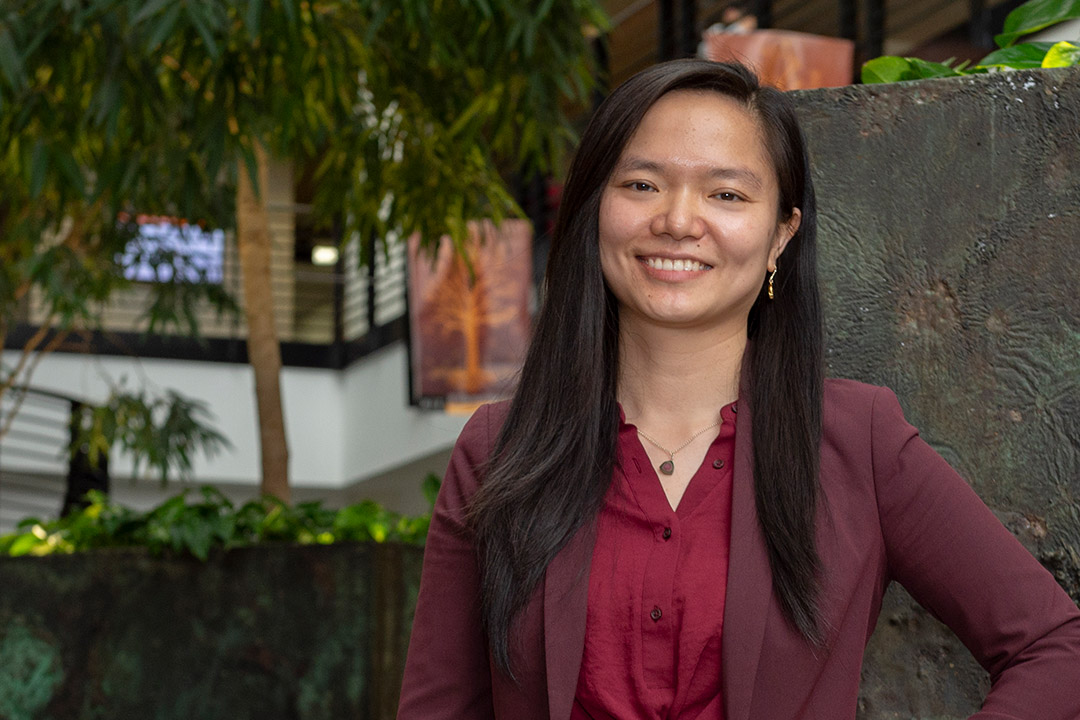Linwei Wang named new director of RIT’s Personalized Healthcare Technology initiative
Current director, David Borkholder, begins leave of absence Oct. 15, joining RIT spin-out company, Heart Health Intelligence
Elizabeth Lamark
Linwei Wang has been named the new director of RIT’s Personal Healthcare Technology research initiative, assuming the role held until recently by David Borkholder, who will be taking a leave of absence from RIT.
Linwei Wang has been named the new director of the Personalized Healthcare Technology signature research initiative at Rochester Institute of Technology. Adam Smith has been named creative director, a new position with the group. It is one of RIT’s strategic research areas and has been instrumental in the development of new health care solutions in areas such as non-invasive technologies, technology-based behavioral health, and new capabilities in cardiac care.
Wang will take on the role held by David Borkholder, who is taking leave from the university to serve as the head of research and development for the start-up company, Heart Health Intelligence (HHI).
Elizabeth Lamark
Adam Smith, an associate professor in the School of Design, show here in a 2018 file photo, has been named creative director of the Personalized Healthcare Technology signature research initiative.
“Since the initiative began in 2016, we have seen exciting growth in healthcare research at RIT,” said Borkholder, the Bausch and Lomb professor in RIT’s Kate Gleason College of Engineering. “Key to this success has been a deliberate focus on forming faculty networks across science, technology, and the arts. The creation of the new position of creative director acknowledges the importance of this element in research at RIT, and I am pleased Adam Smith has agreed to assume this role. Linwei Wang has been a critical member of the leadership team and will provide exceptional leadership to the initiative moving forward.”
Ryne Raffaele, RIT’s vice president and associate provost for research, agreed. “One cannot easily replace the leadership that has been demonstrated by Professor Borkholder. He has done an exemplary job of bringing together recognized strengths from across our institution to tackle the challenges of the 21st century healthcare for which our rapidly growing research portfolio in this area is a testament.”
Wang is a professor of computing in RIT’s Golisano College of Computing and Information Sciences, and leads the Computational Biomedicine Laboratory. She has an extensive background in the development of algorithms for biomedicine. Smith, an associate professor and director of the new media design BFA and visual communication design MFA programs in the School of Design, part of RIT’s College of Art and Design, has experience in both academia and corporate work in the area of multimedia and interactive web design. Both faculty-researchers have been a part of the Personalized Healthcare Technology initiative since it began and have contributed to its interdisciplinary work integrating design and biomedical technologies.
Borkholder also has been with the initiative since its inception. He is one of RIT’s most prominent faculty-researchers and has developed numerous health care devices, most recently the FIT Seat System, a toilet seat with high-tech sensors embedded on its surfaces to detect a broad range of cardiovascular measures, with the potential to provide near real-time information to physicians about patient status.
The seat is now being developed by Heart Health Intelligence (HHI). In 2014, Borkholder and Nicholas Conn, a postdoctoral fellow at RIT, developed the original FIT Seat technology, in collaboration with University of Rochester Medical Center cardiologist Karl Schwarz, M.D. HHI began as a start up with RIT Venture Creations and has since launched the company with Austin McChord as its chief executive officer. Conn, who worked with Borkholder on the design of the FIT Seat, is the company’s chief science officer.













